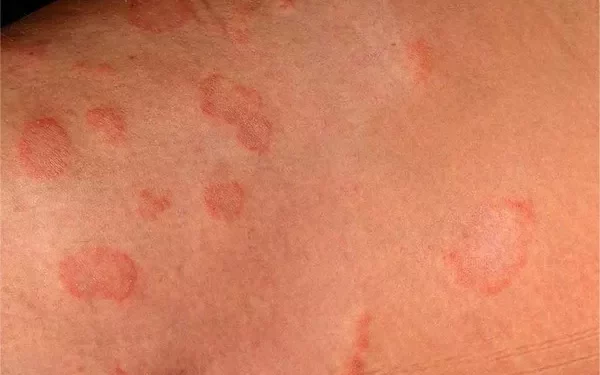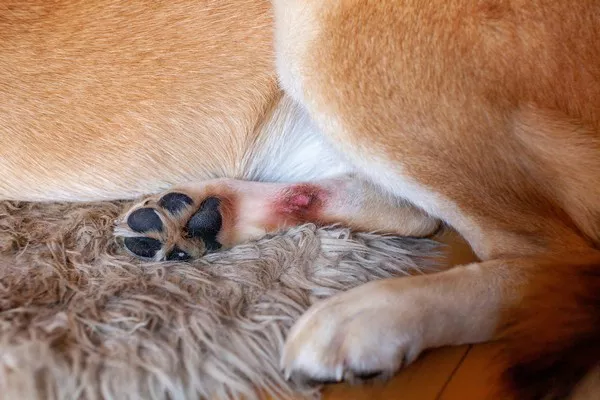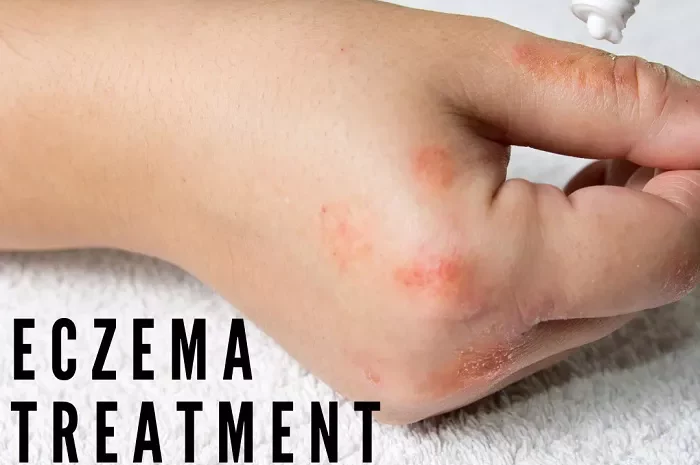Ringworm is a common fungal infection that affects the skin, hair, and nails. It’s characterized by round, red patches with a raised border and a clear center, which gives the appearance of a ring. Although it is called “ringworm,” it has nothing to do with worms. It is caused by a type of fungus known as dermatophytes. This condition is highly contagious and can spread through direct contact with an infected person or animal, as well as by touching contaminated surfaces or objects.
When people discover they have ringworm, one of the first questions they often ask is whether the infection can be cured without medication. While it’s important to understand that medications are typically recommended for faster and more effective treatment, it is possible for ringworm to clear up on its own in some cases. In this article, we will explore different aspects of ringworm, how ringworm can be managed without medication, and when it’s important to seek medical treatment.
What is Ringworm?
Ringworm is caused by fungi that thrive on keratin, a protein found in the skin, hair, and nails. The infection can affect various parts of the body, including the scalp, feet (athlete’s foot), groin area (jock itch), and nails. Ringworm is spread through skin-to-skin contact, sharing contaminated items such as towels, clothing, or combs, and by walking barefoot in public places like swimming pools or locker rooms.
While it is more common in children, ringworm can affect anyone, regardless of age. It usually causes itchy, red, and scaly patches on the skin that can sometimes blister. The infection may spread if left untreated, and it can cause discomfort and embarrassment.
Can Ringworm Heal on Its Own?
In some cases, ringworm may clear up on its own without the need for medical treatment. However, this can take longer than using medication, and there are risks associated with not treating the infection promptly. The body’s immune system may eventually fight off the fungal infection, but this process can take weeks or even months. During this time, the infection may spread to other areas of the body or to other people.
Some people may find that mild cases of ringworm, particularly those that are small and not spreading rapidly, eventually resolve without the need for medication. The body’s natural immune response may be able to combat the fungus on its own, especially if the individual maintains good hygiene practices and avoids further contact with the infection.
How to Help Ringworm Heal Without Medication
If you have ringworm and prefer not to use medication or are waiting to see if the infection will resolve on its own, there are several steps you can take to support the healing process and reduce the spread of the infection.
Maintain Good Hygiene
Good hygiene is crucial when dealing with any type of skin infection, including ringworm. Washing the affected area regularly with mild soap and water can help keep the area clean and prevent further irritation. Avoid scrubbing the skin too harshly, as this can cause damage and make the infection worse.
After washing, gently pat the skin dry with a clean towel. Fungi thrive in moist environments, so it’s important to keep the affected area dry. Avoid wearing tight or wet clothing that can trap moisture around the infection.
Keep the Area Dry
Moisture can exacerbate fungal infections, so it’s essential to keep the area affected by ringworm dry. You can use talcum powder or antifungal powders (which can be purchased over the counter) to absorb moisture and help keep the skin dry. Be sure to apply the powder only to the infected area, and make sure you do not use the same powder on other parts of your body, to prevent cross-contamination.
Use Natural Remedies
Some natural remedies may help in reducing symptoms and promoting healing, although they may not be as effective as antifungal treatments. These remedies can be used alongside good hygiene practices to potentially speed up the recovery process.
Tea Tree Oil: Known for its antifungal properties, tea tree oil can be applied topically to the affected area. Dilute the oil with a carrier oil, such as coconut oil, before applying to avoid irritation. Apply it twice a day to the infected skin until symptoms subside.
Garlic: Garlic has antifungal and antimicrobial properties. You can crush a few garlic cloves and mix them with a small amount of coconut oil to create a paste. Apply this paste to the infected area and leave it on for 20–30 minutes before washing it off.
Apple Cider Vinegar: Apple cider vinegar is thought to have antifungal and antibacterial properties. You can apply it to the infected area using a cotton ball. However, be cautious if you have sensitive skin, as vinegar can cause irritation.
Aloe Vera: Aloe vera is known for its soothing and healing properties. While it might not directly kill the fungus, it can help alleviate the itching and redness associated with ringworm. Apply fresh aloe vera gel to the infected area to soothe the skin.
Avoid Scratching the Area
Ringworm can be very itchy, but scratching the infected area can lead to further irritation and increase the risk of spreading the infection. Scratching can also cause open wounds, which can lead to bacterial infections. It’s important to resist the urge to scratch the affected area and to keep your nails trimmed to reduce the chance of transferring the infection to other parts of your body.
Change Clothing and Bedding Regularly
Ringworm is highly contagious, so it’s essential to change your clothes, socks, and bedding regularly while you have the infection. Wash these items in hot water to kill the fungus. Avoid sharing towels, sheets, or clothing with others to prevent spreading the infection. Always dry your clothing thoroughly before wearing them again.
When Should You Seek Medical Treatment?
While some mild cases of ringworm may resolve on their own with good hygiene and natural remedies, there are situations where medical intervention is necessary. It’s important to seek professional treatment if:
The infection is spreading: If you notice that the ringworm infection is spreading to other areas of your body or becoming more severe, it’s time to seek treatment.
You have a weakened immune system: If you have a weakened immune system due to conditions like diabetes, HIV, or cancer treatment, ringworm may not resolve as easily. Medical treatment may be necessary to prevent complications.
The infection is not improving: If your ringworm does not improve after several weeks of at-home care, you should consult a doctor. The infection may need prescription-strength antifungal medication to heal properly.
The infection is on the scalp or nails: Ringworm on the scalp or nails may require prescription medication, as it is harder to treat than ringworm on the skin.
Can Ringworm Recur?
Even after the infection has been treated, ringworm can recur if preventive measures are not taken. This is particularly true in warm, moist environments, which are ideal for fungi to grow. To prevent recurrence, continue practicing good hygiene, avoid sharing personal items, and keep your environment clean and dry.
Conclusion
While ringworm can sometimes heal on its own, it is often recommended to use antifungal medications to speed up the healing process and prevent the infection from spreading. If you prefer not to use medication, good hygiene, natural remedies, and drying the affected area can help manage mild cases. However, if the infection is severe, spreading, or not improving, it is important to seek medical treatment. By following proper care and taking steps to prevent reinfection, you can manage ringworm effectively and reduce the risk of future outbreaks.
Related topics:


























